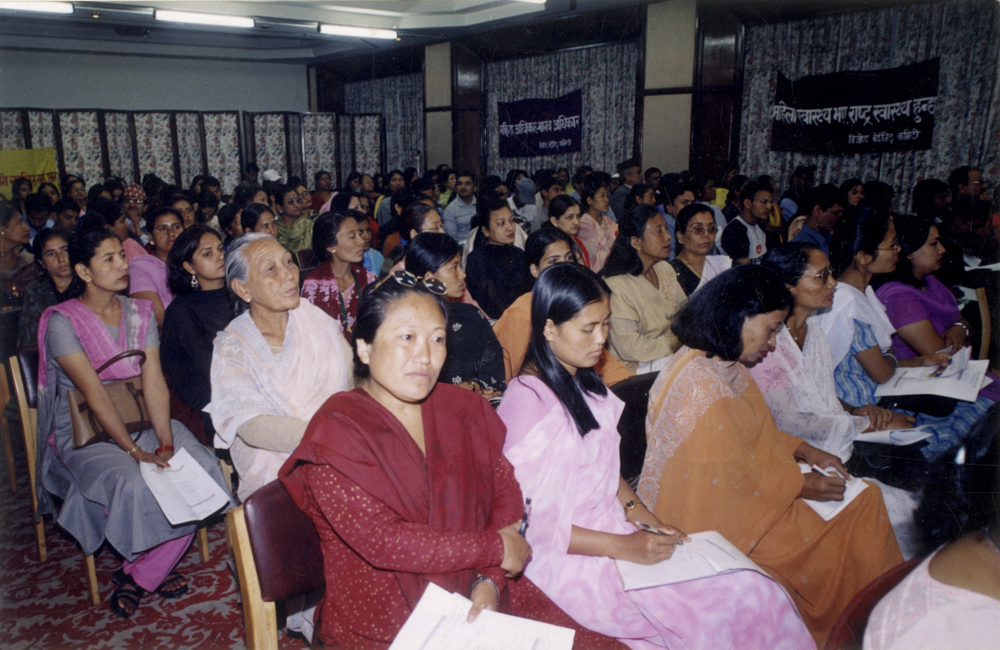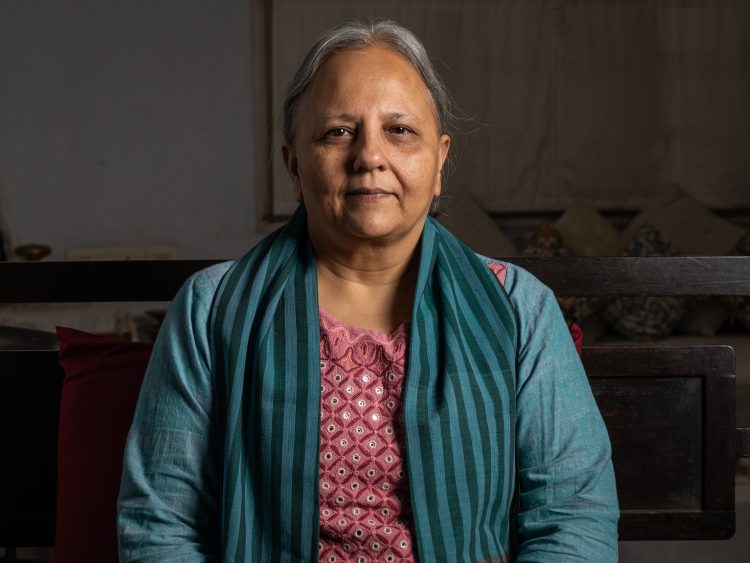HelpAge International is launching a campaign to honour the 30th anniversary of the historic 1995 Beijing Conference by spotlighting remarkable women who attended and helped shape the global gender equality agenda.
Meet Reema Nanavaty,
In 1995, Reema Nanavaty, alongside countless other women from India and around the world, arrived in Beijing with a singular goal – to change the world. She remembers it vividly: thousands of women, young and old, from every background, gathered with a shared purpose. The energy was electric, a powerful force of unity, determination, and hope. For the women of SEWA (Self-Employed Women’s Association), this was not just a conference – it was a moment in history where their voices joined a global chorus demanding dignity, equality, and economic empowerment.
Despite differences in language, experience, and culture, the women present were bound by a common desire: to become agents of change for meaningful work, sustainable livelihoods, and peace through prosperity.
Looking at the world today, Reema sees undeniable progress. Women are emerging as leaders in every sector, from grassroots cooperatives to global decision-making platforms. In Banaskantha, India, she sees women in village councils spearheading solar energy projects. In bustling vegetable markets, women-run cooperatives are expanding their reach, bridging rural and urban economies. Thousands of women are now using their savings to invest in climate insurance, securing their futures against the unpredictable forces of extreme weather.
Yet, despite these advances, the foundation of gender equality remains fragile.
What is missing is sustained and large-scale investment in women’s organisations. Small, short-term projects bring incremental change, but true empowerment comes when organisations like SEWA receive long-term support to build leadership across generations. If you support a project, you get a project. But if you support a women’s organisation, you support generations of women’s leadership.
The struggles of women today are both old and new. The lack of employment, access to capital, and exclusion from decision-making persist. But climate change has brought an additional, urgent burden. Women farmers now face not only extreme heat but sudden hailstorms destroying their crops. SEWA’s response? The Swaccha Aakash (Cleaner Skies) campaign – an ambitious initiative that strengthens women’s economic resilience by integrating climate adaptation and mitigation into their work at the household and community levels.
Beyond climate change, new challenges include the globalisation of local markets, lack of access to emerging technologies like artificial intelligence, and the increasing insecurity of sustainable energy. The fight for gender equality must now expand to include these evolving economic and environmental battles.
When asked whether older women’s rights are being protected, Reema gives a candid response: “Yes and no.” For women in the informal sector, their body is their biggest asset. But in old age, when physical labour is no longer an option, they are too often left without security. The economic system continues to define women’s value by their ability to work, rather than recognising their immense contributions in knowledge, experience, and leadership.
“We must find ways for older women to participate in the economy not only with labour but with wisdom.” This, she argues, is key to building an inclusive and sustainable future for all generations of women.

Has the Beijing Declaration fulfilled its promise? Reema believes it has made a difference – but it has taken nearly three decades for gender issues to become truly mainstream. Gender mainstreaming, she insists, requires much more investment, and women’s organisations like SEWA have been at the forefront of ensuring the Declaration translates into real, tangible action for women workers.
For Reema, hope is not a choice – it is a necessity. “SEWA is always hopeful. We live on hope, and when in distress, we hope for hope!” The road to equality is long, but the movement has momentum. And for younger women, optimism is the only way forward.
At SEWA, older and younger generations work together as equal partners, preserving values while driving innovation. “Age is not a wall at SEWA,” Reema says, “but an additional engine for moving ahead.”
She urges young women to look back at where they come from, to recognise that they stand on the shoulders of those who fought before them. “How can any woman forget that she is standing on the shoulders of her mother? Of other older women?” This intergenerational solidarity is not just an idea – it is a strategy for progress.
As the world marks 30 years since the Beijing Conference, Reema’s message is clear: “We shall overcome – through sisterhood and solidarity.”
Quoting the words of Elaben Bhatt, the founder of SEWA, she reminds us that the struggle for gender equality is inseparable from the fight to protect nature. “All women’s rights, in the end, are nature’s rights. And all nature’s rights, in the end, are women’s rights. Violation of one always affects the other. And violation of both affects the planet.”
This deep, intrinsic connection – what she calls ‘Anubandh’ – between women and nature is more urgent than ever. The future of gender justice, climate resilience, and economic empowerment must be built together, rooted in solidarity, wisdom, and unwavering hope.

She was honoured with the Padma Shri (the fourth-highest civilian award in India) for her contributions to social service. She serves on the World Bank’s Advisory Council on Gender and has influenced global policy at the UN and ILO. Reema continues to drive women’s economic empowerment, pioneering initiatives in green energy, digital inclusion, and sustainable livelihoods across South Asia.